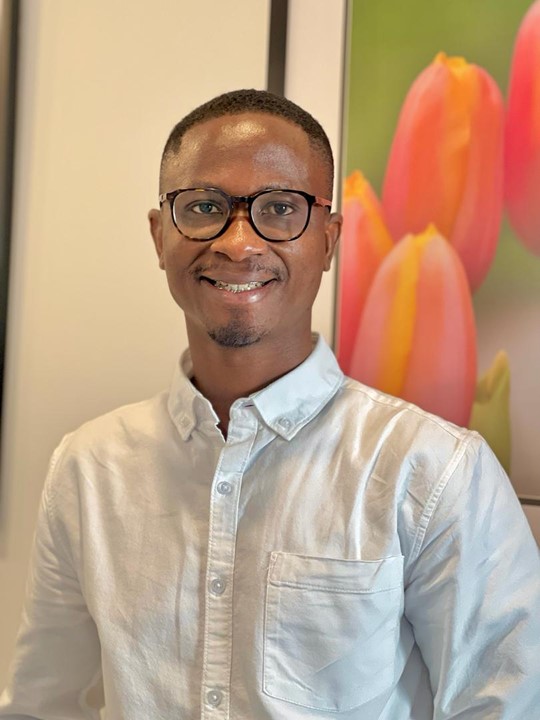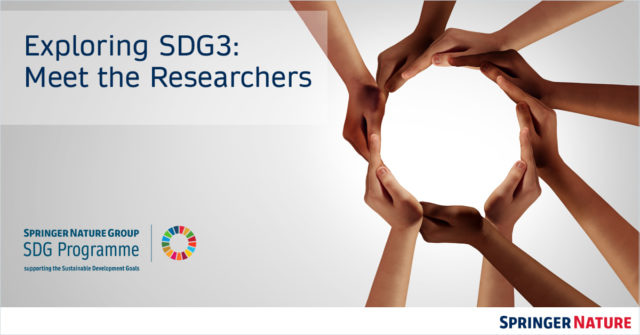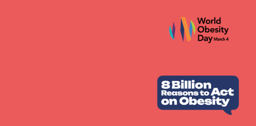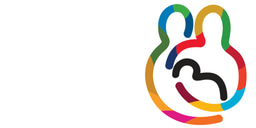Meet the SDG3 Researchers: Dr Bright Opoku Ahinkorah
Published in Social Sciences, Sustainability, and Public Health


Please tell us a bit about yourself.
I am Bright Opoku Ahinkorah, a passionate researcher in global health, with a focus on improving health outcomes in individuals in under-served communities. I earned my PhD in Public Health from the University of Technology Sydney, Australia. Over the past five years, I have had the opportunity to contribute significantly to the fields of reproductive and sexual health, especially adolescent health, through research publications and international collaborations. I currently serve as the Editor-in-Chief for Reproductive Health.
Describe your background and research
My academic background is rooted in my Bachelor of Arts in Population and Health program, which I studied at the University of Cape Coast, Ghana. This foundation sparked my interest in addressing the reproductive health needs of marginalized populations, particularly adolescents and women. Throughout my career, I have focused on critical areas of reproductive health such as adolescent pregnancy, intimate partner violence, maternal health services, and the implementation of reproductive health policies and programmes. One of my recent projects in Ghana, which formed part of my doctoral programme, examined the barriers and facilitators to implementing adolescent pregnancy prevention policies and programmes, with the goal of informing national and regional health policies and programmes. My research spans sub-Saharan Africa, where these challenges are most acute, and I have published numerous papers on these topics in international peer-reviewed journals. My team and I are working to bridge the gap between policy and practice, particularly in low- and middle-income countries where access to maternal and child health services remains a challenge.
How did you get into your field of research?
My journey into reproductive health research began during my undergraduate studies in Population and Health at the University of Cape Coast. I saw the challenges faced by young people and women in accessing reproductive health services, which motivated me to pursue my postgraduate degrees and make a difference in this area. My interest heightened during my master’s in health education, where I focused on public health issues affecting young women in Ghana. From there, I knew I wanted to contribute to improving health outcomes in communities that are often overlooked. This passion has driven me to seek out collaborations and research opportunities that focus on adolescent and maternal health.
Who funds your research?
Unfortunately, I have not had funding for most of my research projects. However, my doctoral project was funded by the Australian Government’s International Research Training Programme Scholarship. With this support, I was able to successfully carry out my doctoral thesis which focused on the impact of policies and programmes on adolescent pregnancy in Ghana. I also collaborate with research institutions across the globe, bringing together a wealth of resources and expertise to further my work in reproductive health.
Are there any special influences or team members that have especially helped you in your career?
I have had the privilege of working with a fantastic team of researchers from around the world. I collaborate with the Global Burden of Disease Collaborator Network, which includes over 1,000 researchers from various disciplines, such as medicine, epidemiology, and social sciences. This collaboration has expanded my knowledge and given me opportunities to contribute to large-scale global health studies. In addition, I have a research mentorship team, co-led by Dr. Abdul-Aziz Seidu. I am grateful to him for his constant support and to all our mentees for their hard work. I am also grateful to mentors like Professor Sanni Yaya, Dr. John Elvis Hagan Jr., and Dr. Edward Kwabena Ameyaw, whose guidance has been instrumental in my academic and research development. These individuals have inspired me and continue to push me to reach new heights in my career.
Do you have any career highlights you are particularly proud of?
One of the most memorable highlights of my career was being named in Stanford University’s list of the top 2% scientists globally in 2022 and 2023. This recognition was a validation of the hard work and dedication I have put into my research. Another key moment was my work on adolescent pregnancy prevention policies in sub-Saharan Africa, which allowed me to engage with policymakers and health professionals to make real changes in reproductive health services. My ability to establish a research mentorship programme and mentor over 30 students and early career researchers globally, has also been incredibly rewarding, as it has allowed me to produce independent researchers who can make an impact in global health.
How does your work relate to SDG3?
My research directly contributes to SDG3 (Good Health and Well-being), particularly Target 3.1, which focuses on reducing maternal mortality, and Target 3.7, which aims to ensure universal access to sexual and reproductive health services. My work on adolescent pregnancy prevention is closely aligned with these targets, as it addresses the need for effective reproductive health programs for young people. By improving access to sexual and reproductive health services, especially in low-resource settings, my research helps reduce unintended pregnancies, maternal deaths, unsafe induced abortions, and other reproductive health challenges. In addition, my work impacts SDG5 (Gender Equality) by empowering young women to take control of their reproductive health and promoting gender equality in health outcomes.
What is the most pressing research question in your field and your hopes for progress in the future?
A critical research question in reproductive health is how to ensure equitable access to comprehensive reproductive health services for adolescents, particularly in LMICs. Despite efforts to improve health systems, many young people still face significant barriers to accessing sexual and reproductive health information and care. Moving forward, I hope my work will contribute to closing this gap by providing evidence through implementation science that supports policy changes, community-based interventions, and health education programs. These changes could have a real impact on achieving SDG3 targets, particularly in reducing adolescent pregnancies and improving maternal health outcomes.
What hurdles you have encountered during your career?
As a researcher from Ghana, one of the main challenges I have faced was securing adequate funding for my research. It was difficult to access global research networks and funding opportunities early in my career. However, through persistence, building strong collaborations, and seeking mentorship, I have been able to overcome some of these barriers. Another hurdle has been visibility in global academia. As a researcher from the global South, it is sometimes harder to gain recognition, but positions such as an Editor-in-Chief for Reproductive Health have been crucial in helping me to gain visibility. Also, being part of the Global Burden of Disease Collaborator Network has also enhanced the visibility of my work.
Is there a resource or person that has particularly inspired you?
One of the most influential resources for me was The Lancet Sexual and Reproductive Health Series, which provided critical insights into the global challenges and solutions in reproductive health. This body of work inspired me to delve deeper into sexual health research and advocate for policies that promote reproductive rights. In terms of personal inspiration, Dr. Abdul-Aziz Seidu, a colleague and co-mentor, has been an incredible influence on my work. His dedication to improving women’s health and his resilience in the face of challenges have inspired me to keep pushing the boundaries of what is possible in reproductive health research.
At Springer Nature we are committed to playing our role in advancing progress towards achieving SDG3 by both supporting researchers and being an active voice, promoting an interdisciplinary evidence-based approach to all targets and indicators within this goal. Learn more about our SDG3 activities and the Springer Nature SDG Programme.

Follow the Topic
-
Reproductive Health

This journal focuses on all aspects of human reproduction, including adolescent health, female fertility, contraception, and maternal health and all articles are open access.
What are SDG Topics?
An introduction to Sustainable Development Goals (SDGs) Topics and their role in highlighting sustainable development research.
Continue reading announcementRelated Collections
With Collections, you can get published faster and increase your visibility.
Reproductive Health Equity for Migrants, Refugees, and Internally Displaced Populations
This collection aims to assess disparities and barriers in access to maternal care, contraception, and safe delivery services among displaced populations —both within and across countries— compared to host communities in low- and middle-income countries (LMICs) and developed countries. Displaced populations often face significant challenges in accessing essential healthcare services, which can lead to poorer health outcomes for mothers and infants. These challenges include higher rates of maternal and infant mortality, due to inadequate access to quality maternal care and contraception, as well as increased rates of cervical and breast cancer, due to low rates of vaccination and inadequate screening.
The collection welcomes studies that explore various approaches to address these disparities, including:
• Improving cultural competency among healthcare providers. By understanding and respecting the cultural backgrounds of displaced populations, healthcare providers can offer more effective and personalized care.
• Increasing financial access to healthcare services. Many displaced individuals face financial barriers that prevent them from seeking necessary medical care. Strategies to reduce these financial obstacles can significantly improve health outcomes.
• Involving communities in the design and implementation of health programs. Community engagement ensures that health interventions are tailored to the specific needs and preferences of the populations they serve. This participatory approach can lead to more sustainable and impactful health programs.
• Encouraging innovative approaches and the implementation of relevant technologies among migrants and refugees.
• Raising awareness of prevention, screening, and access to care for cervical and breast cancers.
Overall, this collection aims to highlight innovative solutions and best practices to reduce health disparities and improve maternal and infant health among international and internally displaced populations.
This Collection supports and amplifies research related to SDG 1, No Poverty, SDG 3, Good Health and Well-Being, and SDG 10, Reduced Inequalities.
We are committed to supporting participation in this issue wherever resources are a barrier. For more information about what support may be available, please visit OA funding and support, or email OAfundingpolicy@springernature.com or contact the Editor-in-Chief.
Publishing Model: Open Access
Deadline: Mar 20, 2026





Please sign in or register for FREE
If you are a registered user on Research Communities by Springer Nature, please sign in